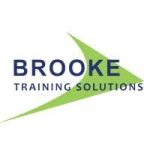
Do you need a fast-paced, dynamic career to keep you busy?
Do you want flexible work hours, most of which are from home?
If so, consider becoming a freight broker, which allows you to be an integral part of the logistics and transportation industry.
Years of education are not required to become a freight broker, and a low financial cost exists to enter the industry.
Utah doesn’t require licensure, so they defer to federal regulations, which require new freight brokers to go through the licensing process, which is easy.
Keep reading if you’re interested in an exciting career as a freight broker in Utah!
Table of Contents
Freight Broker Duties in Utah
As a new freight broker, you can start a company or learn the ropes with an established organization.
Most budding brokers opt to join an existing company to learn, network, and better understand the workings of the industry, then advance to business ownership.
Regardless of which track you choose, freight broker duties remain the same, with marketing and lead generation requirements for those who own a business, which include the following:
- Determining client needs.
- Ensuring carriers are paid within the contract timing.
- Finding the best carrier for the job.
- Helping carriers fill empty shipment slots.
- Issuing invoices.
- Planning shipment details.
- Price negotiation.
- Providing the details and updates on client shipments.
- Receiving and processing client orders.
- Regular communication with the client and carrier regarding shipment progress.
- Tracking shipments and solving logistics-related problems.
Licensing Requirements to Become a Freight Broker in Utah
As mentioned, Utah doesn’t have a governing body to regulate freight brokers, so the state relies on the FMCSA (Federal Motor Carrier Safety Administration) to maintain licensing.
The minimum requirement to become a freight broker is a high school diploma, so you can quickly get started via the following steps:
Step One: Apply
The FMCSA is part of the U.S. DOT (Department of Transportation), so a DOT number must be applied through the FMCSA.
This number documents your information in the Federal Government database.
Step Two: Secure a Surety Bond
A surety bond protects you, your company’s employees, and all shipments you manage.
The Government requires a bond of at least $75,000 and is required for licensure regardless of whether you are joining an existing company or starting a business.
Step Three: Designate an Agent
A process agent is responsible for all legal documentation.
The Government requires completion of form BOC-3, which designates the agent.
Like the previous step, this is required even if you plan to join a company.
In this instance, you would be the designated process agent.
Step Four: Complete the Application
Once you have received a DOT number, been awarded a surety bond, and completed form BOC-3, you can finish the application and pay the $300 to apply.
The typical licensing lead time is four-to-six weeks.
Freight Broker Programs in Utah
Although obtaining a license and becoming a freight broker doesn’t require special education, industry experts advise that a training program is an excellent option before entering the industry.
Most programs are only one to a few weeks long, so there is a manageable time commitment.
These programs provide basic but essential knowledge to set you up for licensure and success.
Salt Lake Community College
For those living in the Salt Lake City area, Salt Lake Community College offers the following programs:
Brooke Training
Considered one of the best training programs in the industry, Brooke Training offers in-person classes in select major cities and an online program.
Candidates in Utah will need to take the online program, of which two options are available: basic and advanced.
The introductory class costs $2,500 and takes five days to complete.
The advanced course costs $4,000 and requires five days but is intensive.
Certified Freight Broker / Agent Training and Supply Chain Professional
This program costs $3,800 and is offered online.
The entire time commitment is one year, but students graduate with certified supply chain professionals and licensed freight broker designations.
Freight Broker / Agent Training
The freight broker/agent training is an online, self-paced course that can be completed in under six months or much faster for those who take an intensive approach.
Program tuition is $1,900, which includes 180 hours of coursework.
| School Name | Address |
|---|---|
| Salt Lake Community College | 4600 S Redwood Rd, Salt Lake City, UT 84123, United States |
| Brooke Training | 120, 5005, 5005 Colleyville Blvd #120, Colleyville, TX 76034, United States |
| Certified Freight Broker / Agent Training and Supply Chain Professional | |
| Freight Broker / Agent Training |
Salary
The U.S. annual salary for freight brokers ranges from $33,000 to $37,300, averaging $35,100.
The U.S. annual salary range in Utah is slightly lower than the U.S. average, with pay ranging from $31,200 to $35,300 and an average of $33,200.
Annual Salary Range:| Location | Avg. Annual Salary |
|---|---|
| Salt Lake City | $46,120 |
| Lehi | $43,998 |
| Provo | $44,206 |
| Sandy | $45,995 |
| Orem | $44,206 |
| Ogden | $44,538 |
| West Jordan | $45,954 |
| Layton | $44,371 |
| Logan | $43,913 |
| St. George | $48,148 |
Regional Salary in Utah
| Region | Employed | Avg. Annual Salary | Avg. Hourly Pay | Top 10% Annual Salary | Bottom 10% Annual Salary |
|---|---|---|---|---|---|
| Ogden-Clearfield, UT | 80 | $42,880 | $20.61 | $62,580 | $32,290 |
| Provo-Orem, UT | 50 | $35,980 | $17.3 | $55,510 | $18,990 |
| Salt Lake City, UT | 400 | $46,100 | $22.17 | $67,450 | $32,870 |
* Employment conditions in your area may vary.
Frequently Asked Questions
What attributes do the best Utah freight brokers need?
The best brokers in the industry are incredibly well-organized and detail-oriented.
They are excellent problem solvers and can communicate via phone, in-person, or written means with vendors, carriers, shippers, and clients.
Additional characteristics include a strong work ethic, especially when working long hours to ensure shipments go smoothly, and self-motivation regarding following up.
Can I become a Utah freight broker without experience?
Those considering a freight brokerage career are often concerned with not being able to jump into the industry without experience.
A learning curve must be surpassed in any new position to succeed.
Therefore, experts recommend budding freight brokers enter a training program to gain knowledge and build confidence and start with an established freight broking company to learn the industry’s nuances.
Does Utah have a high demand for freight brokers?
Freight brokers are critical to the seamless movement of goods across the U.S. by matching shipper demand with trucking capacity.
The result is efficiency, expedited timing, and cost savings for their clients.
With more goods than ever being moved around the U.S. and globe and countless smaller shipping carriers emerging, freight brokers are in high demand in Utah to liaise between parties.
Freight Broker Info by State
- Alabama
- Alaska
- Arizona
- Arkansas
- California
- Colorado
- Connecticut
- Delaware
- Florida
- Georgia
- Hawaii
- Idaho
- Illinois
- Indiana
- Iowa
- Kansas
- Kentucky
- Louisiana
- Maine
- Maryland
- Massachusetts
- Michigan
- Minnesota
- Mississippi
- Missouri
- Montana
- Nebraska
- Nevada
- New Hampshire
- New Jersey
- New Mexico
- New York
- North Carolina
- North Dakota
- Ohio
- Oklahoma
- Oregon
- Pennsylvania
- Rhode Island
- South Carolina
- South Dakota
- Tennessee
- Texas
- Utah
- Vermont
- Virginia
- Washington
- West Virginia
- Wisconsin
- Wyoming









